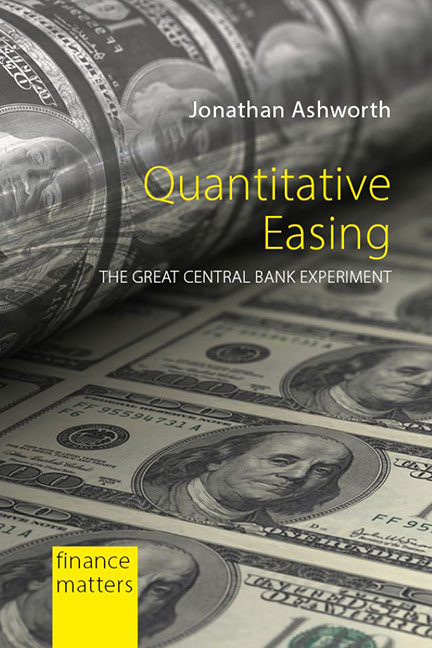Book contents
- Frontmatter
- Contents
- Preface and acknowledgements
- Abbreviations
- Foreword
- 1 Monetary policy-making since the end of Bretton Woods
- 2 Key monetary policy trends and events in the decades before the Great Financial Crisis
- 3 The Great Financial Crisis and the onset of quantitative easing
- 4 How quantitative easing works
- 5 Measuring the effectiveness and impact of quantitative easing
- 6 International spillovers of quantitative easing
- 7 Criticisms and negative externalities of quantitative easing
- 8 Exiting quantitative easing and policies for the next slowdown
- Conclusion
- Notes
- References
- Index
6 - International spillovers of quantitative easing
Published online by Cambridge University Press: 20 December 2023
- Frontmatter
- Contents
- Preface and acknowledgements
- Abbreviations
- Foreword
- 1 Monetary policy-making since the end of Bretton Woods
- 2 Key monetary policy trends and events in the decades before the Great Financial Crisis
- 3 The Great Financial Crisis and the onset of quantitative easing
- 4 How quantitative easing works
- 5 Measuring the effectiveness and impact of quantitative easing
- 6 International spillovers of quantitative easing
- 7 Criticisms and negative externalities of quantitative easing
- 8 Exiting quantitative easing and policies for the next slowdown
- Conclusion
- Notes
- References
- Index
Summary
I previously highlighted how, given that the USA is the world's largest economy and the USD is the global reserve currency, changes in its monetary policy – conventional or unconventional – have very large impacts across the global economy and financial markets. This is also the case for other major economies such as the euro area, Japan and China, but to a much lesser extent. Reflecting this, any material changes in policy by these central banks garner significant international attention.
Strikingly, the announcement by the Fed of additional rounds of QE once the worst of the GFC had passed, such as QE2 in late 2010, gained significant attention overseas – much more than was typical for interest rate cuts. There was particularly strong criticism from politicians in emerging economies – with Brazilian politicians accusing the Fed of engaging in “currency wars” (Bernanke 2015c), suggesting it was deliberately trying to depreciate the USD to gain a competitive advantage in a beggar-thy-neighbour approach. This was an echo of the 1930s, a period marked by a significant deterioration in international trade relations amid the fallout from the Great Depression (James 2013). Chinese Prime Minister Wen Jiabao also blamed US QE for contributing to the sharp rise in global commodity prices (BBC 2011). Criticism was not confined to emerging markets, with German Finance Minister Wolfgang Schauble echoing the currency manipulation accusations and suggesting that the Fed's policies were “clueless” (Financial Times 2010). At an IMF conference on unconventional monetary policy in 2015, Fed Governor Lael Brainard suggested “words that were used by foreign leaders in private meetings were even more colorful” and she noted that the reaction was equally as striking in the opposite direction when the Fed first announced its intention to taper its asset purchases in 2013 (foreign leaders were angry about the negative impact US tightening would have on their economies) (Brainard 2015a). Indeed, Rajan (2014) highlighted the risks from QE for emerging economies pertaining to both large capital inflows (during the easing phase) and outflows (during the tightening phase), whose timing is solely related to conditions in the source country (the US).
- Type
- Chapter
- Information
- Quantitative EasingThe Great Central Bank Experiment, pp. 93 - 110Publisher: Agenda PublishingPrint publication year: 2020

